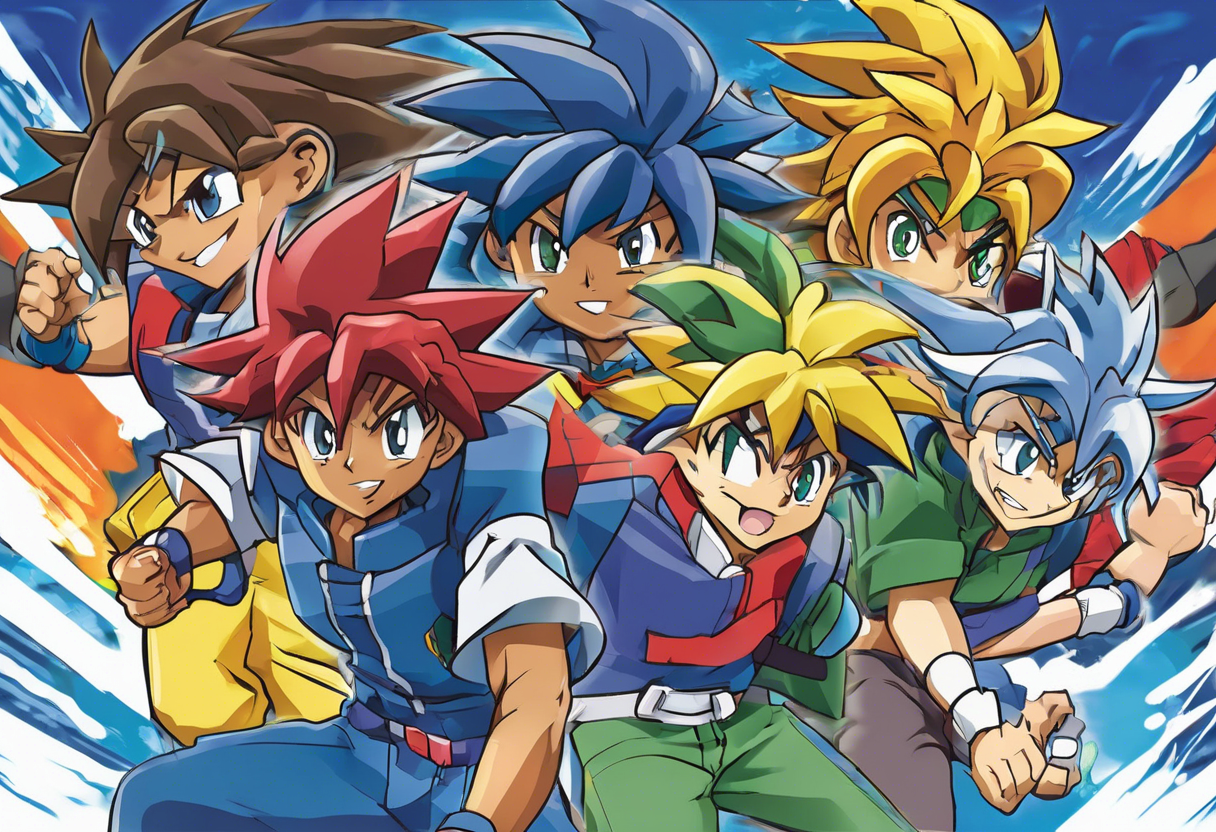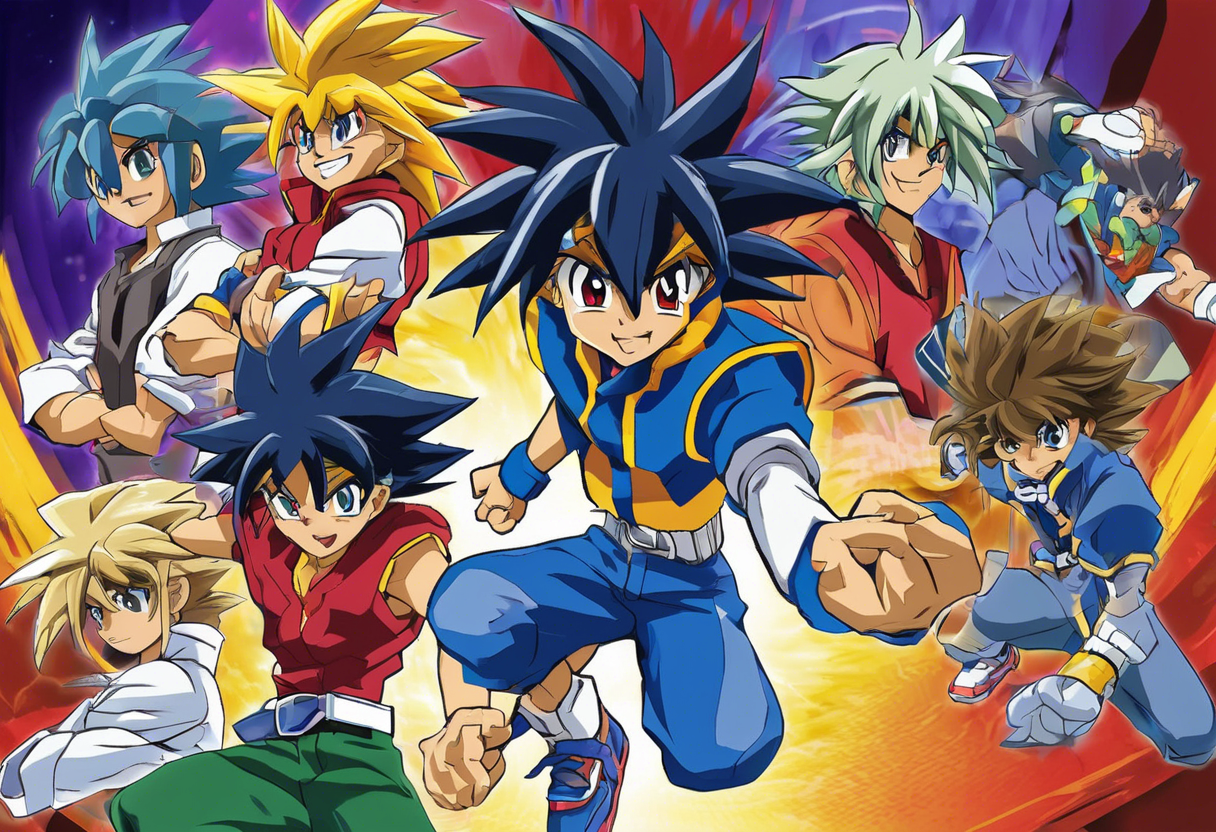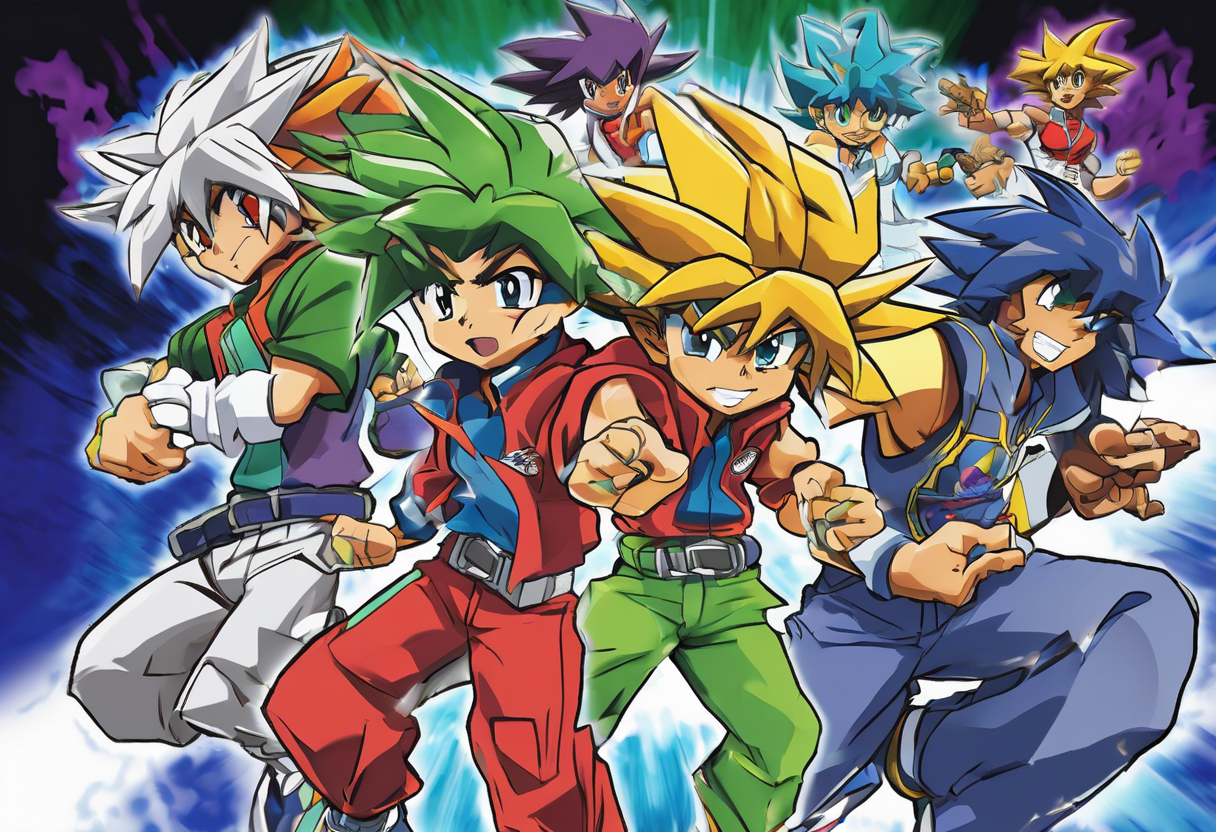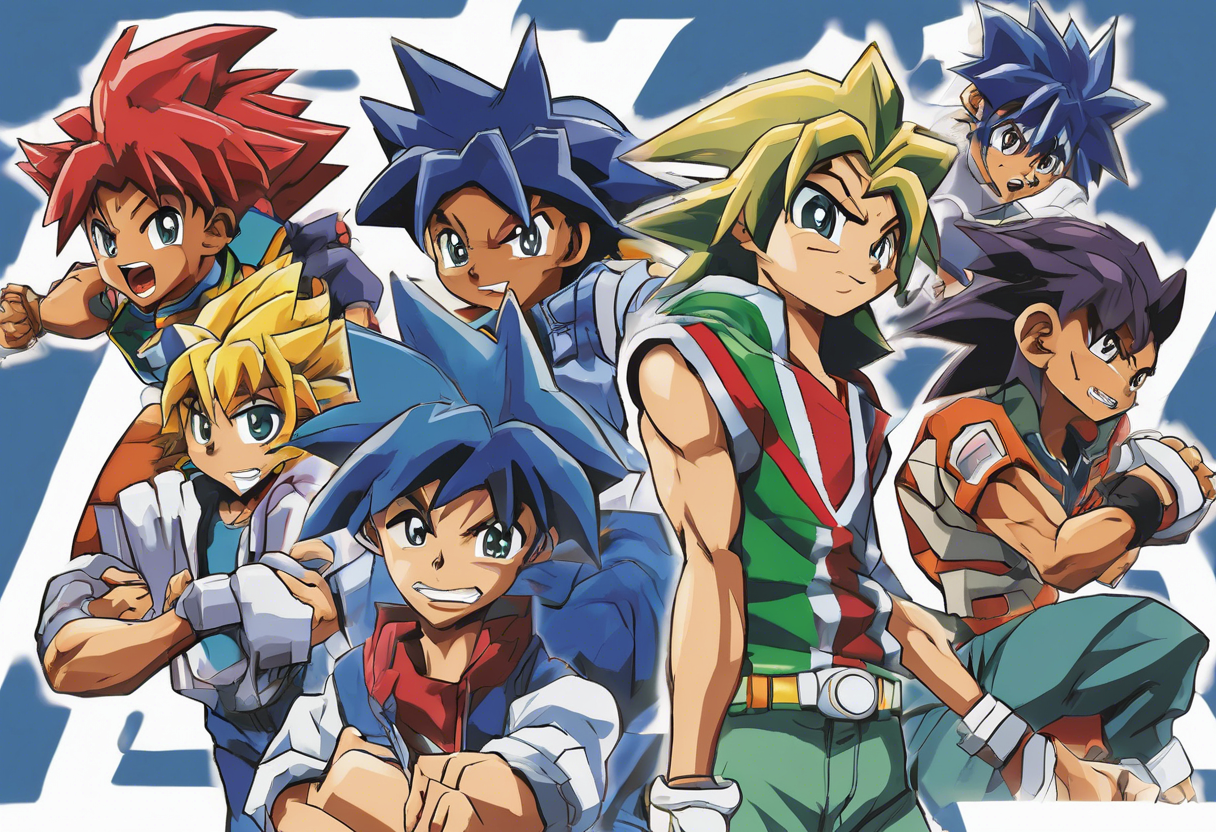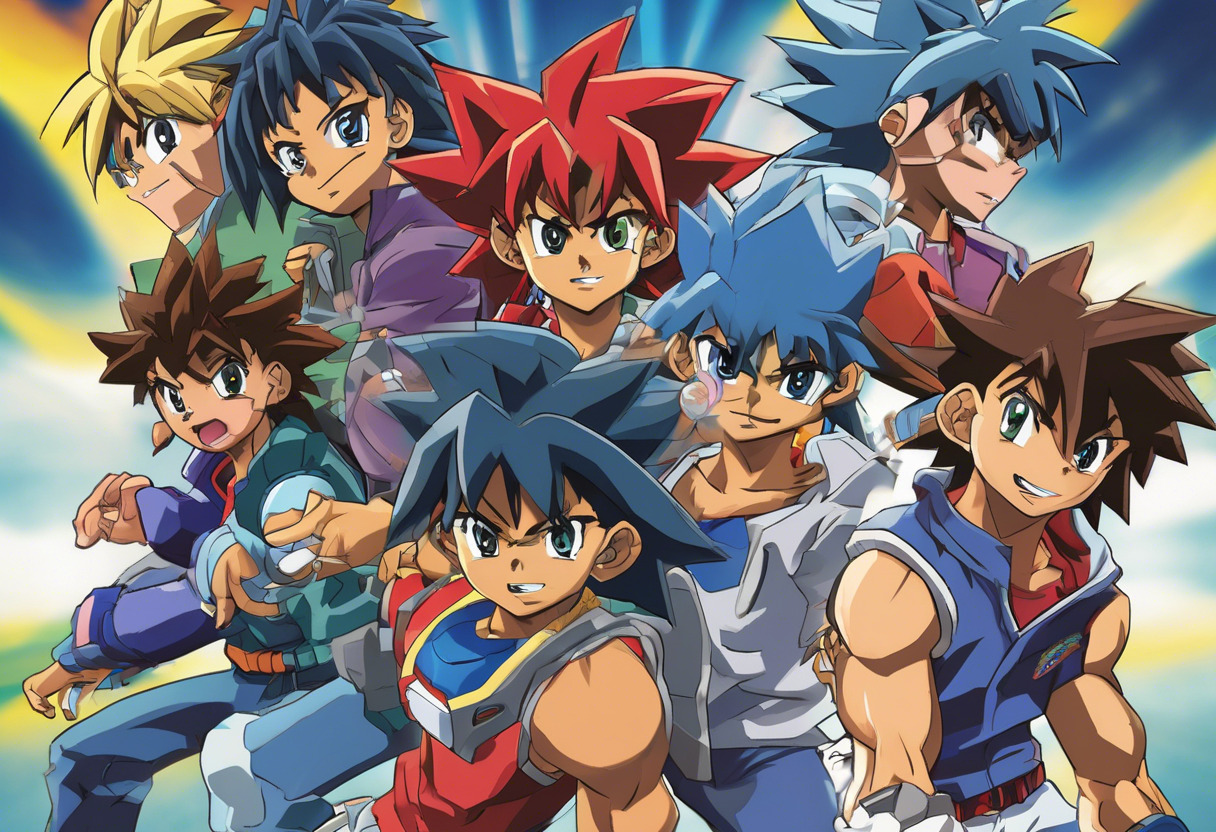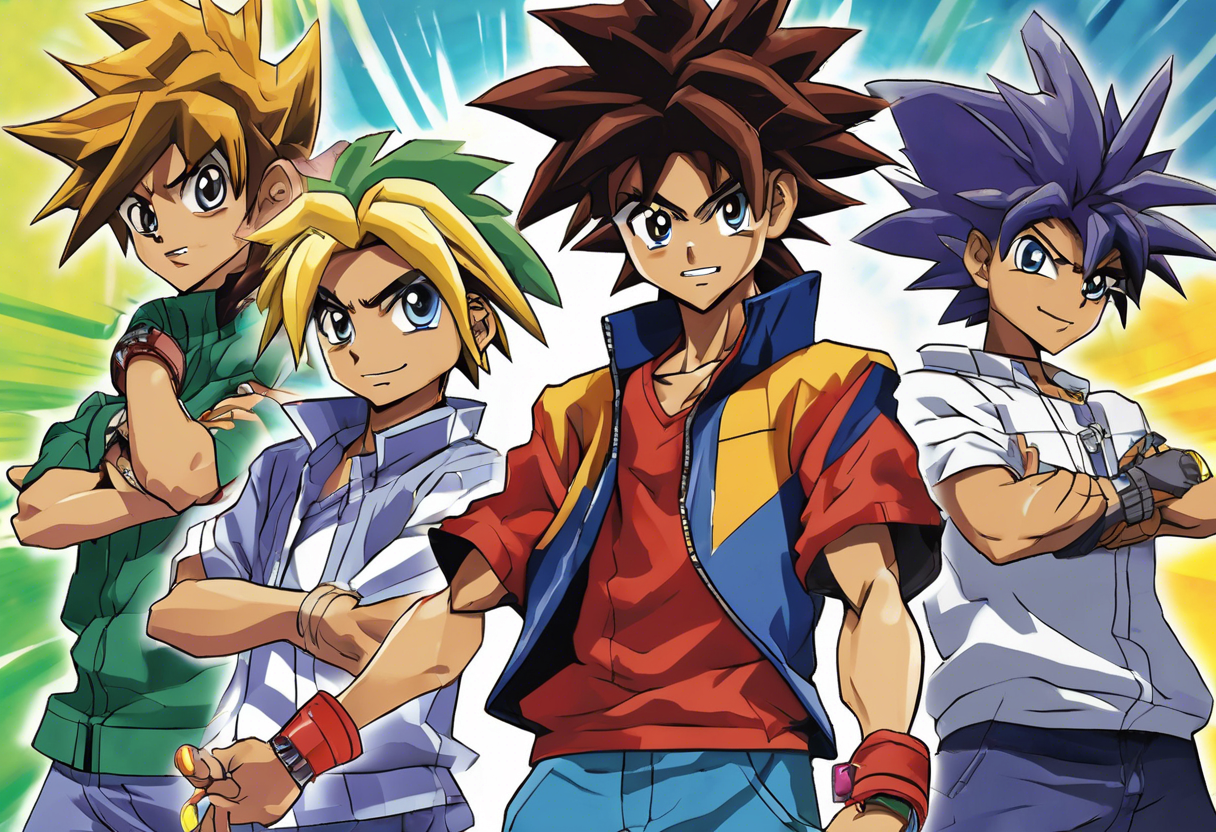Contents
Beyblade (2001) – Episode 36: Déjà Vu All Over Again
Introduction
Beyblade, the popular anime series that originated from the manga by Takao Aoki, has captivated audiences with its unique blend of action, friendship, and competitive spirit. Episode 36, titled "Déjà Vu All Over Again," is a pivotal installment in the first season of the series. This episode, part of the 2001 Japanese collaboration anime television series, was produced by Madhouse and directed by Toshifumi Kawase, with scripts written by Kazuhiko Soma and others. The episode initially aired in 2001 and has since become a memorable part of the Beyblade narrative.
What sets "Déjà Vu All Over Again" apart is its focus on character development and the strategic depth of Beyblade battles. This episode delves into the emotional and technical aspects of the characters, making it a standout within the series.
Plot Summary
In "Déjà Vu All Over Again," the story picks up where the previous episode left off, with Tyson Granger, the main protagonist, still reeling from his initial defeat at the hands of Enrique, a mysterious and skilled Blader from Rome. Unwilling to let this defeat discourage him, Tyson dedicates himself to reworking his Beyblade, Dragoon. This period of intense preparation and reflection is crucial for Tyson as he seeks to understand and improve his battling technique.
Meanwhile, Enrique is facing his own doubts about his Beyblade skills and the reliability of his Bit Beast, Amphilyon. Despite his confidence and charm, Enrique’s encounter with Tyson has left him questioning his abilities. This internal conflict adds a layer of complexity to Enrique’s character, showing that even the most skilled Bladers can face self-doubt.
The stage is set for a rematch between Tyson and Enrique when Oliver, a friend from France, visits Enrique in Rome. Oliver’s presence serves as a catalyst for the upcoming battle, as he encourages Enrique to confront his doubts head-on. Tyson, determined to prove himself, challenges Enrique to another battle.
The rematch is intense and strategic, with Tyson employing a novel tactic: pitting the two heads of Enrique’s Bit Beast, Amphilyon, against each other. This innovative approach highlights Tyson’s growth as a Blader and his ability to think outside the box. However, the battle takes an unexpected turn when Amphilyon turns on Enrique, posing a significant threat to his safety.
In a dramatic turn of events, Tyson saves Enrique’s life by intervening and controlling the situation. This act of bravery not only showcases Tyson’s quick thinking but also underscores the bond of respect and camaraderie that is developing between the two Bladers.
Throughout the episode, the settings of Rome and the personalized BeyStadium created by Enrique add to the visual and cultural richness of the narrative. The episode also explores the themes of perseverance, innovation, and the importance of learning from one’s mistakes.
Themes and Symbolism
"Déjà Vu All Over Again" is rich in themes and symbolic elements that enhance its storytelling and resonance with audiences. One of the central themes is the importance of perseverance and learning from defeat. Tyson’s determination to improve after his initial loss is a powerful message about the value of hard work and resilience.
The episode also explores the theme of innovation and strategic thinking. Tyson’s unique tactic of pitting Amphilyon’s heads against each other symbolizes the creative and analytical skills required to succeed in competitive environments.
The character of Enrique serves as a symbol of self-doubt and the need for self-reflection. His internal struggles reflect the universal human experience of questioning one’s abilities, making him a more relatable and complex character.
The bond between Tyson and Enrique, despite being opponents, symbolizes the respect and camaraderie that can develop between competitors. This aspect highlights the series’ emphasis on friendship and mutual respect.
Cultural Impact
"Déjà Vu All Over Again" has had a significant cultural impact since its release. The episode’s innovative battle strategies and character developments have influenced the broader Beyblade community, inspiring fans to think creatively about their own battles.
The episode’s reception was positive, with fans appreciating the depth in character development and the intense battle scenes. It has also been referenced in various other media, including fan art and fan fiction, further solidifying its place in popular culture.
Critical Reception
Critically, "Déjà Vu All Over Again" was well-received for its engaging storyline, character development, and the strategic depth of the Beyblade battles. Critics praised the episode for its ability to balance action with emotional depth, making it a compelling watch.
Audiences also praised the episode, noting the improvement in Tyson’s character and the intriguing dynamics between Tyson and Enrique. However, some critics felt that the episode’s pacing could have been tighter, but overall, it was seen as a strong installment in the series.
Legacy
"Déjà Vu All Over Again" continues to be an enduring part of the Beyblade legacy. The episode’s focus on innovation, perseverance, and respect among competitors has inspired many young viewers and aspiring Bladers.
The strategic battle tactics and character interactions in this episode have set a high standard for subsequent episodes and seasons, influencing the direction of the series. It remains a memorable and influential episode in the Beyblade franchise, contributing to its lasting impact on anime and competitive sports genres.

